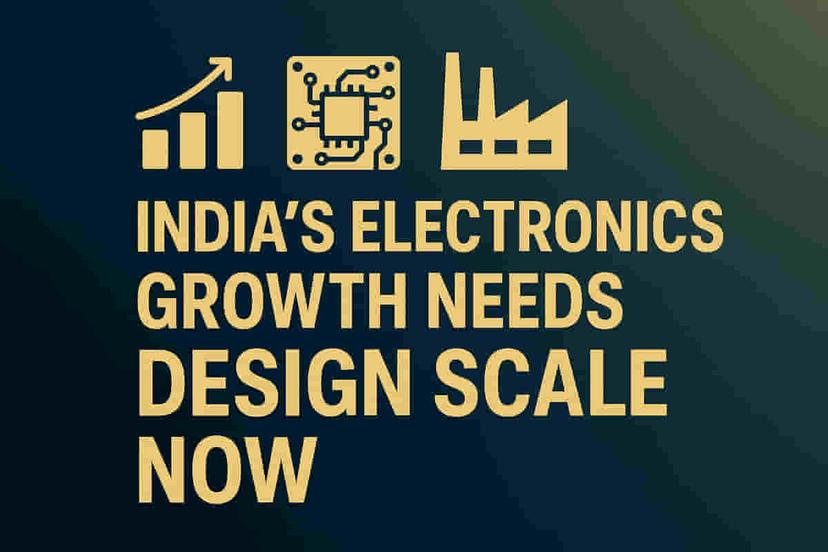SIDBI Venture Capital Launches Rs 1,005 Crore Antariksh Fund for Indian Spacetech
Overview
SIDBI Venture Capital Ltd (SVCL) has successfully launched the Antariksh Venture Capital Fund (AVCF) with an initial close of Rs 1,005 crore. This fund, anchored by a substantial Rs 1,000 crore contribution from IN-SPACe, will invest in early and growth-stage Indian spacetech companies. With a target corpus of Rs 1,600 crore, AVCF aims to bolster India's burgeoning space economy and enhance its capabilities in areas like satellites, launch systems, and space services.
SIDBI Venture Capital Ltd (SVCL), a subsidiary of SIDBI, has announced the first close of its new venture capital fund, the Antariksh Venture Capital Fund (AVCF), at an impressive Rs 1,005 crore. The fund received a significant anchor investment of Rs 1,000 crore from IN-SPACe (Indian National Space Promotion and Authorization Centre), highlighting strong governmental support for the space sector.
AVCF is registered as a Category II Alternative Investment Fund (AIF) and has a tenure of 10 years. Its primary objective is to invest across early and growth stages in Indian companies operating within the space technology ecosystem. This includes critical areas such as launch systems, satellite technology, payloads, in-space services, ground infrastructure, earth observation, communications, and downstream applications.
This initiative marks SVCL's 12th venture capital fund and is poised to play a pivotal role in achieving India's national ambition to develop a $44 billion space economy by the year 2033. The fund has a target corpus of Rs 1,600 crore and will seek to raise additional capital from both domestic and international institutional and sovereign investors through its green-shoe option.
Arup Kumar, Managing Director and CEO of SVCL, stated that AVCF is India's largest spacetech-focused fund and among the largest globally. He emphasized its role in advancing India's space capabilities.
Impact
This fund is a significant development for the Indian spacetech sector. By providing dedicated venture capital, it will enable promising Indian startups and growing companies in the space domain to access much-needed funding for research, development, and expansion. This can accelerate innovation, create new jobs, and contribute to India's self-reliance and competitiveness in space exploration and services. It may lead to growth for listed companies that supply to or partner with these spacetech entities.
Rating: 6/10
Difficult Terms Explained:
- SIDBI Venture Capital Ltd (SVCL): A company that invests in startups and growing businesses to help them expand.
- Antariksh Venture Capital Fund (AVCF): A specific investment fund managed by SVCL that focuses on companies in the space technology sector.
- First Close: The point when a fund has raised a substantial initial amount of money and officially begins its investment operations.
- Rs 1,005 crore: A total amount of money, equal to 10,050,000,000 Indian Rupees.
- IN-SPACe: The Indian National Space Promotion and Authorization Centre, a government body that encourages and regulates private sector participation in space activities.
- Category II AIF: A type of investment fund registered with the Securities and Exchange Board of India (SEBI) that pools money from investors to invest in various assets, including startups and private companies.
- 10-year tenure: The fund is planned to operate and make investments for a period of ten years.
- Spacetech enterprises: Companies that are involved in developing or using technologies related to space, such as building rockets, satellites, or offering space-based services.
- Early and growth stages: Investment phases for companies. 'Early stage' refers to very young companies (startups), while 'growth stage' refers to companies that are already established and are expanding their business.
- Launch systems, satellites and payloads, in-space services, ground services, earth observation, communications and downstream applications: These are different segments within the space industry. Launch systems are rockets, satellites and payloads are the equipment sent into space, in-space services are activities done in orbit, ground services are mission control and communication from Earth, earth observation uses satellites to view the Earth, communications involve satellite-based internet or TV, and downstream applications are services that use space data (like GPS or weather forecasts).
- National objective of building a $44 billion space economy by 2033: A specific goal set by the Indian government to grow the country's space industry to a value of 44 billion US dollars by the year 2033.
- Target corpus: The total amount of money that the fund aims to raise from all investors.
- Anchor investor: The first major investor in a fund whose commitment helps attract other investors.
- Mobilise additional commitments: To collect more investment money from other potential investors.
- Domestic and international investors: Investors who are citizens or entities of India, and those from other countries.
- Institutional and sovereign investors: Large financial organizations like pension funds or endowments (institutional), and government-backed investment funds (sovereign).
- Green-shoe option: A clause in a fund agreement that allows the fund manager to sell more units or shares than originally planned if there is high demand.
- Managing Director and CEO: The highest executive roles in a company, responsible for overall management and strategy.
- National Venture Fund for Software & IT Industry: An older venture fund managed by SVCL that focused on software and IT companies.
- Category-defining companies: Companies that set new standards or lead their market segment.
- Unicorns: Privately held startup companies valued at more than one billion US dollars.
- Patient, governance-led risk capital: Investment that is provided for a long period, with strong oversight and management practices, to support businesses undertaking calculated risks for future growth.
- Startups and MSMEs: Startups are new companies, and MSMEs (Micro, Small, and Medium Enterprises) are small and medium-sized businesses.
- Central and state governments, public institutions and private investors: Various entities that SVCL works with, including government bodies, public sector organizations, and private individuals or companies.
Transportation Sector

Air India Resumes China Flights: Non-Stop Delhi-Shanghai Service Returns After Six Years

JSW Infrastructure Expands Global Footprint with 51% Stake Acquisition in Oman Port Project

Zoomcar Reports Significant Net Loss Reduction but Faces Urgent Funding Needs

Supreme Court Seeks Rules on Airline Airfares to Curb Unpredictable Charges
Industrial Goods/Services Sector

India's Engineering Exports Target $250 Billion by 2030 via Global Market Diversification

India's Electronics Sector Needs Scale and Design: PLI Scheme Boosted, But Experts Urge Deeper Capabilities

WPIL Limited Secures ₹426 Crore South African Water Project Contract

Arvind Ltd Partners Peak Sustainability for Gujarat Biomass Plant to Replace Coal

Power Sector Woes: India's 1.3 Million Transformer Failures Under Government Scrutiny











